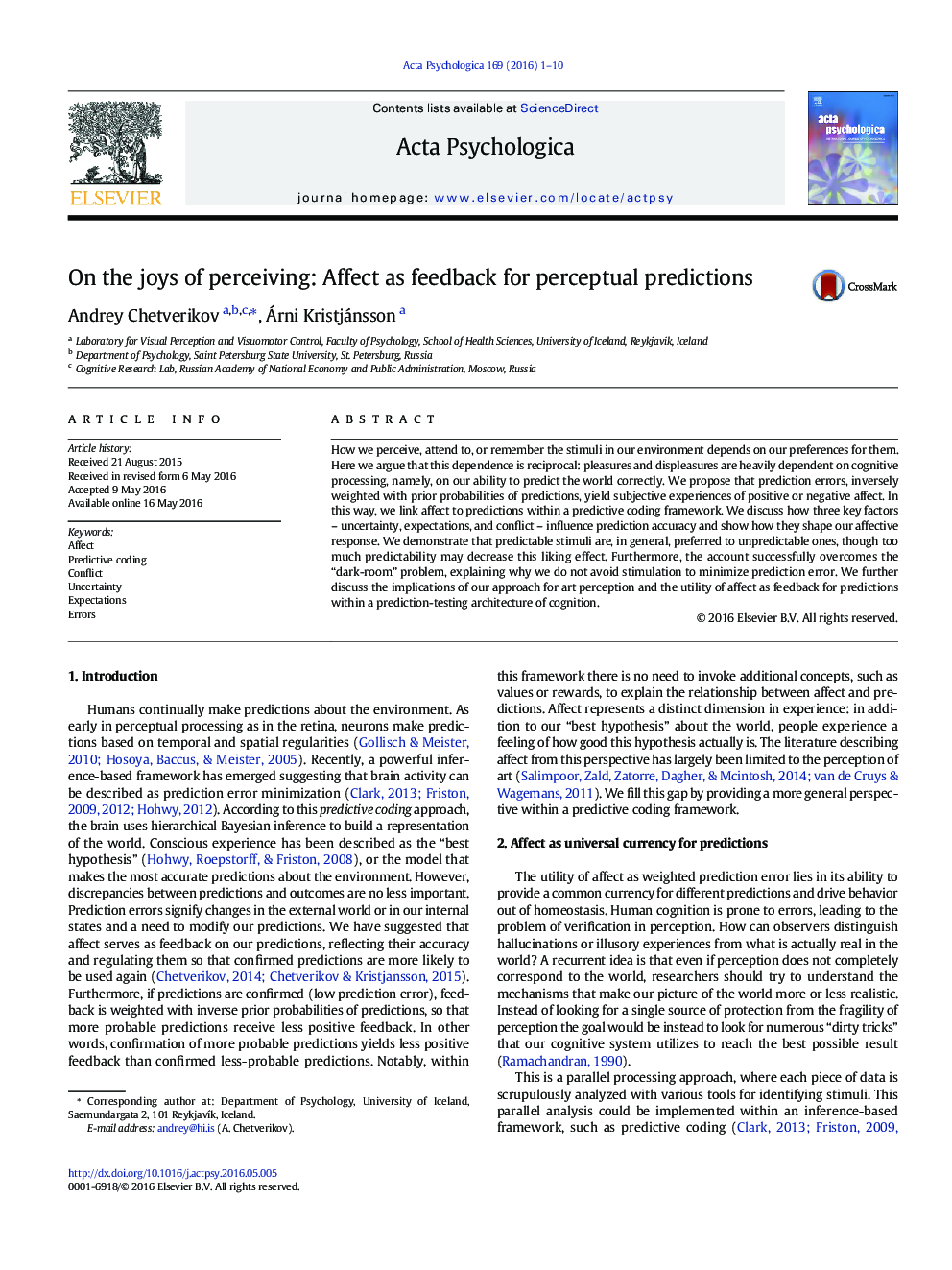| Article ID | Journal | Published Year | Pages | File Type |
|---|---|---|---|---|
| 919616 | Acta Psychologica | 2016 | 10 Pages |
•We propose a new model linking affect to predictions in cognitive tasks.•Affect is a prediction error weighted with the inverse prior probability of prediction.•We review evidence related to uncertainty, expectations, and conflict.•In line with the model people prefer predictable but not too predictable stimuli.
How we perceive, attend to, or remember the stimuli in our environment depends on our preferences for them. Here we argue that this dependence is reciprocal: pleasures and displeasures are heavily dependent on cognitive processing, namely, on our ability to predict the world correctly. We propose that prediction errors, inversely weighted with prior probabilities of predictions, yield subjective experiences of positive or negative affect. In this way, we link affect to predictions within a predictive coding framework. We discuss how three key factors – uncertainty, expectations, and conflict – influence prediction accuracy and show how they shape our affective response. We demonstrate that predictable stimuli are, in general, preferred to unpredictable ones, though too much predictability may decrease this liking effect. Furthermore, the account successfully overcomes the “dark-room” problem, explaining why we do not avoid stimulation to minimize prediction error. We further discuss the implications of our approach for art perception and the utility of affect as feedback for predictions within a prediction-testing architecture of cognition.
